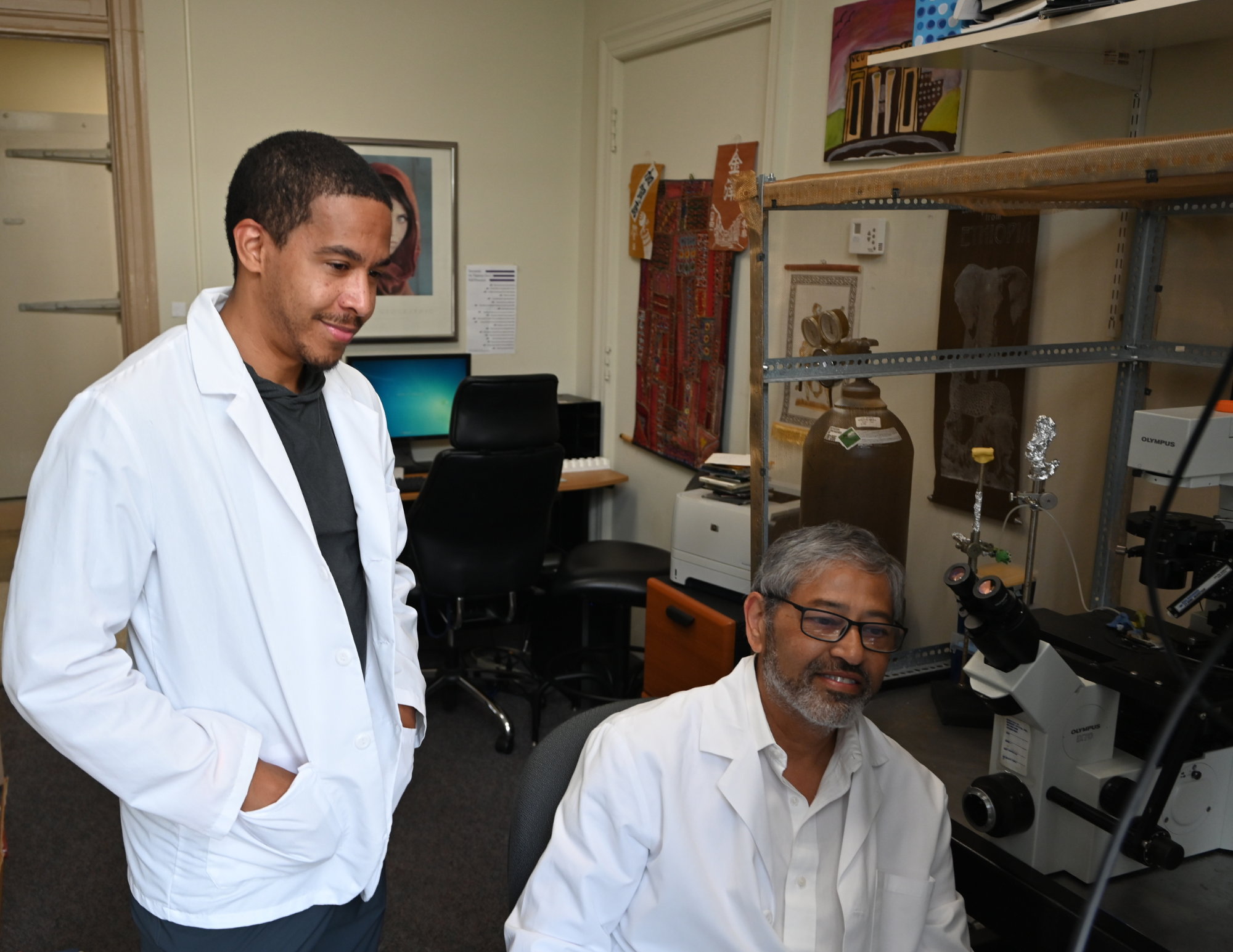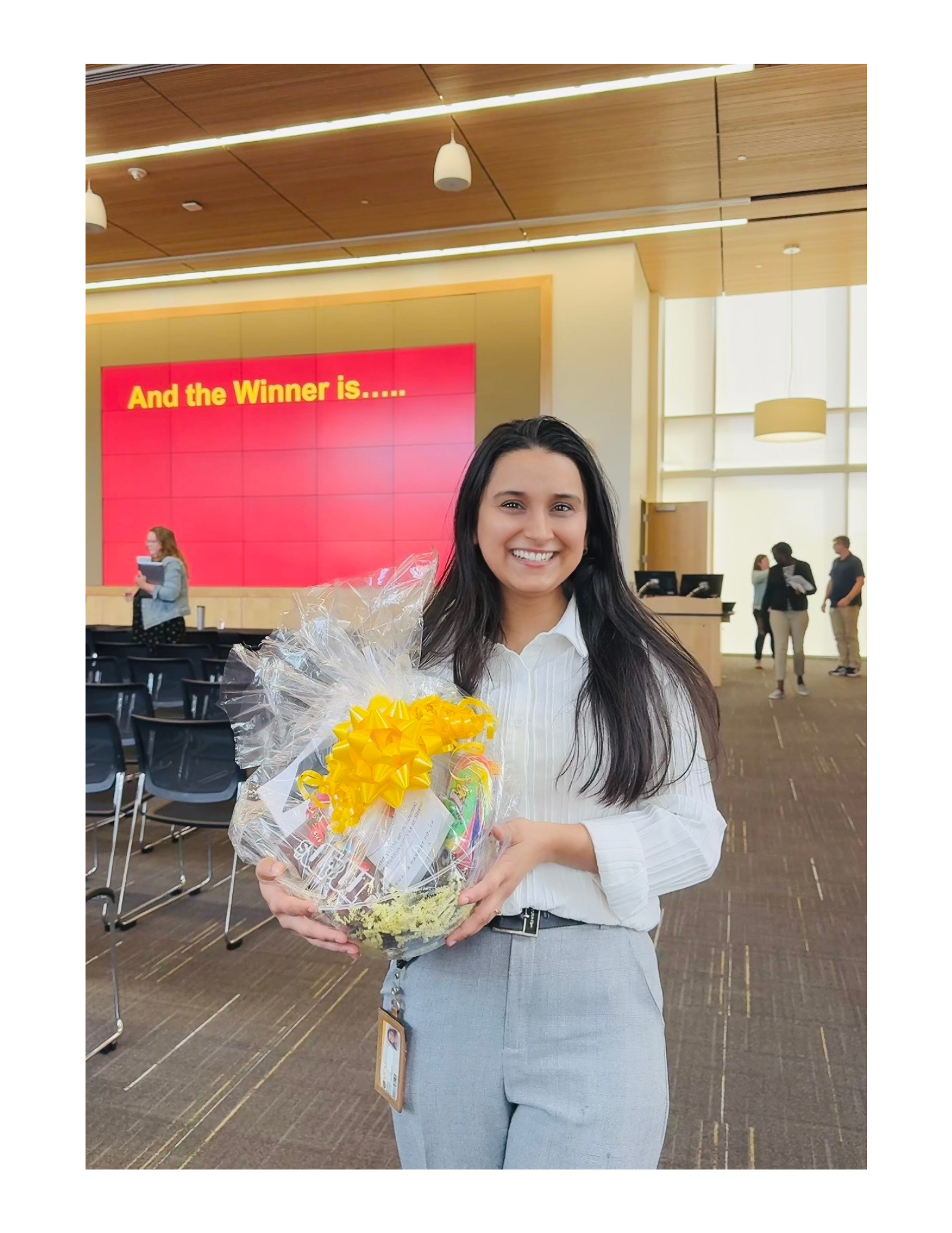Three Minutes to Impact: Sagun Poudel's Thesis Story
Think of the most complex concept you have learned in your academic career—now imagine trying to explain it in under three minutes to an audience that knows nothing about your discipline. This is the challenge that 3-Minute Thesis (3MT) participants have embraced, distilling their research into engaging, lightning-quick presentations for an audience that does not share their expertise. Many theses and dissertations can be written in thousands of words and take hours to present, but students in this competition have just three minutes and one slide to convey their often highly technical research to a lay audience. The 3MT competition was first held at the University of Queensland (UQ) Australia, in 2008,; the essence of the competition is celebrating Ph.D. candidates’ ability to “effectively explain their research in three minutes, in a language appropriate to a non-specialist audience,” according to UQ. The Graduate School at Virginia Commonwealth University (VCU) also offers this opportunity for graduate students annually during Graduate Education Week.
 This year’s winner was Sagun Poudel, a fourth year Ph.D. candidate at the School of Pharmacy. Her thesis, titled “Long Acting Polymeric Microparticles for Age-Related Macular Degeneration,” is focused on engineering biodegradable polymeric microparticles that can provide sustained drug release to the back of the eye, to help patients with retinal diseases. Historically, retinal diseases such as age-related macular degeneration is treated with invasive injections into the eyes via intravitreal injection. “In the clinic, patients have to go through injections every month or two and they are very invasive and very costly,” she explained. Sagun’s research utilizes novel polymeric microparticles that can provide sustained drug release to the retina for at least six months with a single intravitreal injection.
This year’s winner was Sagun Poudel, a fourth year Ph.D. candidate at the School of Pharmacy. Her thesis, titled “Long Acting Polymeric Microparticles for Age-Related Macular Degeneration,” is focused on engineering biodegradable polymeric microparticles that can provide sustained drug release to the back of the eye, to help patients with retinal diseases. Historically, retinal diseases such as age-related macular degeneration is treated with invasive injections into the eyes via intravitreal injection. “In the clinic, patients have to go through injections every month or two and they are very invasive and very costly,” she explained. Sagun’s research utilizes novel polymeric microparticles that can provide sustained drug release to the retina for at least six months with a single intravitreal injection.
Sagun wanted to participate in this years’ 3MT competition because she was fascinated by the concept of explaining complicated research studies in the simplest way possible. “Every day in your life, you think about your research in the most technical and scientific way possible,” said Sagun, about how researchers think about their own work. “We are compressing almost four years of research into three minutes, so I had to pull out all the important things..which is my bigger story and the significance of what I am doing with my work,” she added.
The criteria for a high score at the 3MT competition also emphasizes engagement and communication. Ultimately, it is all about the story they tell and the preparation that goes into delivering it effectively. To prepare for this competition, Sagun spent hours watching videos of 3MT competitions from around the world and began rehearsing her three minute presentation to her colleagues and friends. “I practiced a lot with technical and non-technical people … I got feedback from my advisor, he made suggestions, like ‘maybe you might not want to say this, it sounds a bit more complicated.’”
While Sagun first learned about the 3MT competition in 2020, she did not yet feel that she had enough research to present if she were  to participate. Almost four years later, this was something she wanted to do during her final year in her PhD program. “I have enough things to tell a good story and a big story. I know what I'm working for, I know what the impact my research has. So, I had all of those together in me and I was more confident to have my story out there,” said Sagun. “Other than that, I think I've always had fun speaking in public. I enjoy talking to people. For example, even when I go to a research conference, I like talking, I like telling things to people so that they understand [my research]. I think that gives me a lot of satisfaction, making people understand the scientific things that I do.”
to participate. Almost four years later, this was something she wanted to do during her final year in her PhD program. “I have enough things to tell a good story and a big story. I know what I'm working for, I know what the impact my research has. So, I had all of those together in me and I was more confident to have my story out there,” said Sagun. “Other than that, I think I've always had fun speaking in public. I enjoy talking to people. For example, even when I go to a research conference, I like talking, I like telling things to people so that they understand [my research]. I think that gives me a lot of satisfaction, making people understand the scientific things that I do.”
The 3MT competition is a powerful platform for graduate students to showcase their research and communicate its significance in accessible ways. Sagun’s journey – from feeling unprepared to share her research to confidently sharing her complex study on “Long Acting Polymeric Microparticles for Age-Related Macular Degeneration”– illustrates the power of engagement and communication, no matter how complex your research is.